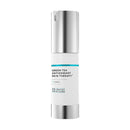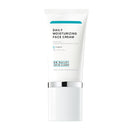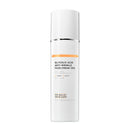Bad Things Can Happen When You Get a Tattoo

Bad things can happen when you get a tattoo and you need to know about them before you step foot into the parlor. Tattoos are everywhere. Are you tempted to get a tattoo? They have become incredibly popular that's for sure.
The way tattoos are viewed today is so different than back in the early 1980's when I was in medical school. Back then, our psychiatry rotation taught that if a person had more than 5 tattoos, they had a high chance of meeting the diagnostic criteria for being a sociopath! Of course, we know that's not true today, in fact many fine upstanding citizens have so many tattoos that doing a complete dermatology skin exam on them can be really tricky.
Here in Northern California tattoos are so common that I get to see them all day long in my practice.
But, is getting a tattoo really as trivial as it seems?
Actually no, it's not. Before you decide to get one, or get another one, learn what to watch out for. It's important to pick your tattoo artist well - not just based on their artistic talents, but also on their knowledge and hygiene. Here is what I, as a dermatologist, want you to know before you get a tattoo.
What are some of the bad things that can happen when you get a tattoo that you need to know about BEFORE getting a tattoo?
Think about it, the two big, but seldom talked about, issues with getting a tattoo that you need to know are:- Opening your skin to the point where it bleeds is actually surgery!
- Tattoo ink is a foreign body, just like a splinter or gravel. Some bodies may not mind ink in the skin, but other bodies may want to fester it out, just as can happen with splinters.
In this context you can deduce that getting a tattoo can result in some unwanted outcomes including infections, allergic reactions and scars. Let's take them one at a time.
Infections from Tattoo Procedures
The top of the list for bad things that can happen when you get a tattoo is a localized skin bacterial infections (including impetigo and MRSA staphylococcus infections ("staph infection") to name a few) or viral infections (including HPV and herpes to name a few) at the site.
More ominously, the tattoo procedure can also cause generalized (systemic) infections due to transmission of hepatitis B or C.
These infections are potentially deadly. Also, toxic shock from staph infections, syphilis, leprosy and other horrific infections have been connected with getting a tattoo. Again, tattoo procedures are a form of surgery and getting a tattoo is not a trivial procedure. Infections from tattooing can happen due to contaminated ink, contaminated needles, inadequately disinfecting the treatment site, and open wounds from scratching the treatment site after tattooing.
Getting a tattoo is like having surgery and you need to be picky.
You want the procedure done under strict aseptic conditions by someone who really knows what that involves! Instruments should be sterile and preferably disposable. Ink must be sterile and of good quality and the skin must be disinfected as though surgery is about to be performed, which it is.
Allergic Reactions to Tattoo Ink
Allergic reactions are another potential hazard of getting a tattoo. Your body may react to tattoo ink under the skin as an allergen or a toxin - and therefore attack it.
How long does an allergic reaction to your tattoo take to show up?
These types of reactions can start right away or take years to begin.
What does an allergic reaction to your tattoo look like?
The allergic reaction to tattoo dye can involve a simple eczema-like rash at the tattoo site or become a large and lumpy mass that looks like a tumor and is very unsightly.
Red tattoo pigments are particularly likely to be attacked by the body’s immune system.
There are no sure-fire ways to predict in advance how your body will tolerate tattoo ink. Patch testing is a type of allergy testing done by some dermatology offices to detect allergic reactions to metals and other allergens similar to tattoo ink. They are not reliable for tattoo material and require a lot of ‘out of the box' thinking and testing on the part of the physician. Thus, this sort of testing should be done by dedicated patch test clinics such as those in dermatology training clinics or academic dermatology teaching programs where there are physicians dedicated to this type of allergic reaction.

Different color tattoo ink has different risks of allergy.
We know that red dye in particular is troublesome. Red dyes contain organic azo pigments and quinacridones which are very taunting to the skin’s immune system. This makes them especially likely to trigger allergic delayed hypersensitivity reactions.
Because tattoo ink contains a variety of metals and other allergens, there is an element of risk when it is deposited under the skin.
These ink ingredients are foreign and sometimes your immune system may want to react against them.
Some of the foreign materials in tattoo ink includes dichromate (green), cobalt (blue), cadmium (yellow) and mercury salt (red). These are pigments found in some of the oil paints I've used in art class and my teacher had us wear gloves to keep these pigments off our skin.
Who is at highest risk for an allergic reaction to a tattoo?
Anyone allergic to metal may react to metal in tattoo ink.
Keep in mind that some ink has been shown to be contaminated with nickel sulfate. Nickle is the metal people are allergic to when they are allergic to metal jewelry. If you are allergic to metal, I would not recommend being tempted by a tattoo, you may well end up with a bigger allergy than you ever imagined.
If you have a history of eczema, your body is more allergy prone and more at risk for the sort of common allergic reactions seen in a tattoo ink allergy.
I would counsel anyone with eczema to think really carefully before getting a tattoo, especially on a part of their skin that will be highly visible. Again, those allergic reactions can show up years after a tattoo is placed because it sometimes takes time for the body's immune system to fully react in the presence of an allergen.
You can probably tell that tattoos worry my dermatologist's brain. That being said, there are so many beautiful people with beautiful tattoos. I just want you to be informed and careful :-)
If you found this helpful, click here to sign up for my weekly Newsletter.
I'll keep you updated on skin health from the perspective of a dermatologist with over 35 years of dermatology experience, 45 years as a scientist and who has done over 200,000 skin exams. That experience creates a unique perspective on trends like the popularity of tattoos!
References
Khunger N, Molpariya A, Khunger A. Complications of Tattoos and Tattoo Removal: Stop and Think Before you ink. J Cutan Aesthet Surg. 2015 Jan-Mar;8(1):30-6. doi: 10.4103/0974-2077.155072.
Gaudron S, Ferrier-Le Bouëdec MC, Franck F, D'Incan M. Azo pigments and quinacridones induce delayed hypersensitivity in red tattoos. Contact Dermatitis. 2015 Feb;72(2):97-105. doi: 10.1111/cod.12317. Epub 2014 Dec 2.











